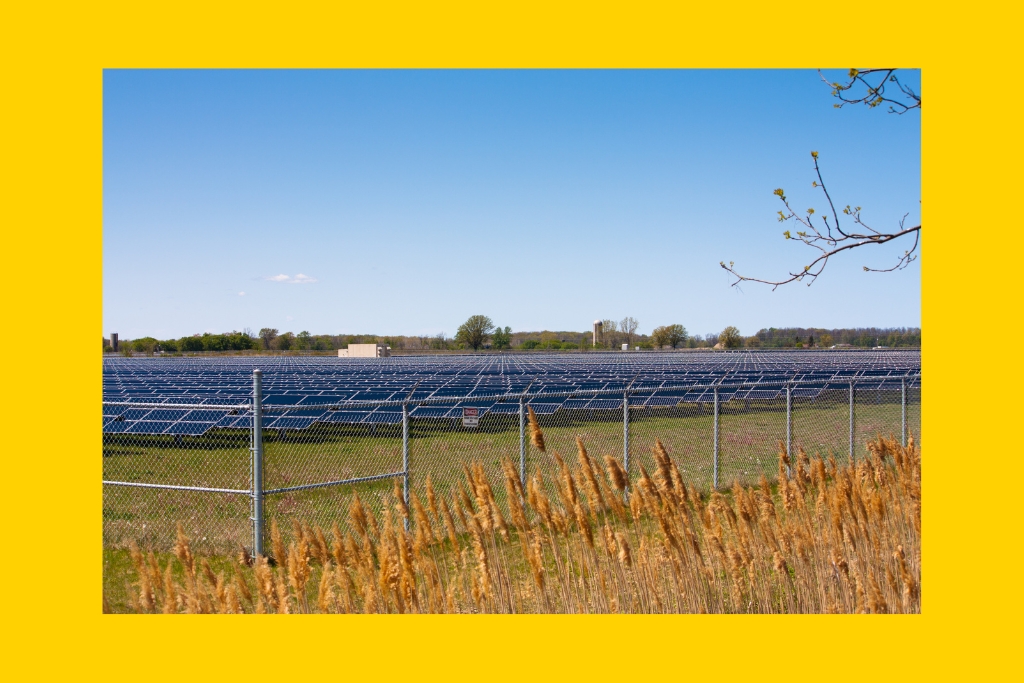California
California’s Electric Car Culture
The state has been pushing EVs for over thirty years, with huge progress in the past five years.
California has been a leader in clean cars — the result of a long history of regulatory efforts. Here’s how we got where we are, and what will need to happen going forward.
CONTINUE READINGOil and Gas Sponsorships in Major League Sports
A survey of sponsorships across six major league sports leagues in the U.S. reveals more than 60 deals with high-polluting companies.
If California Attorney General Rob Bonta attends a home game to cheer on his local NBA team—the Sacramento Kings—he may encounter sponsorship ads promoting not one but two of the oil companies he’s suing for allegedly deceiving the public about climate change. Then again, Attorney General Bonta, a former soccer player and self-described soccer dad, …
Continue reading “Oil and Gas Sponsorships in Major League Sports”
CONTINUE READINGA New Energy Project at UCLA Law
The Emmett Clean Energy Law & Leadership project will build a bridge between the existing expertise of UCLA’s energy law scholars and policymakers.
You don’t have to look beyond the front pages of newspapers, or beyond rooftops in your neighborhood to know that we are in the midst of a clean energy revolution, with renewable energy technologies dramatically decreasing in price and increasing in availability. These technologies promise to reduce energy cost burdens for households, as well as …
Continue reading “A New Energy Project at UCLA Law”
CONTINUE READINGElectric Shared Mobility:
Program Design Elements Can Produce More Equitable, Durable, and Successful Projects
Shared mobility—an umbrella term for any transportation mode shared among multiple passengers—has the potential to accelerate transportation electrification, air quality, and greenhouse gas reduction goals, meet the needs of underserved communities that most lack mobility access, and advance broader mobility equity goals. CLEE’s report, Electric Shared Mobility: California Lessons Learned for Equity in Program Design, …
Continue reading “Electric Shared Mobility:”
CONTINUE READING“Salt Lakes in Crisis: Legal Responses to Ecological Catastrophes”
Upcoming U.C. Davis Law Review Symposium To Provide Interdisciplinary Focus On Threatened Western U.S. Lakes
On Friday, September 20th, the student-run U.C. Davis Law Review will host a most timely conference examining an environmental crisis facing many of the American West’s iconic “terminal lakes.” That term refers to lakes that have no natural outlet. For many years, protracted droughts and human diversions from freshwater rivers and streams feeding those lakes …
Continue reading ““Salt Lakes in Crisis: Legal Responses to Ecological Catastrophes””
CONTINUE READINGCommunity Solar: Local and Individual Benefits
Community solar offers a rich case study for how a diverse range of values can be integrated into the traditionally narrow scope of public utility commission decision-making.
Earlier this week, I published a blog post highlighting some of the systemwide benefits community solar programs can provide and exploring considerations for policy design prioritizing each benefit. Today’s post continues that project, this time focusing on several of the benefits community solar can generate at the local or community level and for individual households: …
Continue reading “Community Solar: Local and Individual Benefits”
CONTINUE READINGCommunity Solar: The Systemwide Benefits
The debates over community solar program design are fascinating sites of struggle over which values should drive decision-making.
Electricity regulation has traditionally been defined by a relatively narrow public interest prerogative: ensuring just and reasonable rates for reliable electric service. The call to decarbonize, however, has injected a new diversity of values into the conversation. Transforming the electric power system to reduce greenhouse gas emissions is opening new opportunities to elevate values like …
Continue reading “Community Solar: The Systemwide Benefits”
CONTINUE READINGEnvironmental Bills at the 10-yard Line
Now that the legislative session has wrapped, the ball is in the Governor’s hands. Here are some of the environmental bills he could sign by September 30.
The California legislative session wrapped up on Saturday, August 31st at midnight, with legislators working until the clock struck twelve. As usual, it was an exciting night to watch. Unlike most years, there seemed to be more of a rush at the end to reach agreement on some of the major issue areas, as well …
Continue reading “Environmental Bills at the 10-yard Line”
CONTINUE READINGCalifornia Pulls Back On Sustainable Aviation Fuels
Air Resources Board abruptly withdraws proposal to mandate low-carbon jet fuel
California regulators had an opportunity this year to be a global leader on requiring airplanes to use low-carbon jet fuel. But the Air Resources Board announced earlier this month that it will back off from its earlier proposal to require jet fuel providers to decarbonize, through the agency’s landmark low carbon fuel standard program. Why …
Continue reading “California Pulls Back On Sustainable Aviation Fuels”
CONTINUE READINGNew Report: Charging and Financing Electric Trucks
CLEE/UCLA Law report & webinar offers solutions to meet California’s zero-emission trucks goal
California has groundbreaking goals to require automakers to sell, and large fleets to purchase, zero-emission trucks and buses in increasing percentages, starting this year. But these goals will only be achievable if the state has sufficient charging infrastructure to fuel the vehicles, along with available financing to help truck owners purchase or lease them. To …
Continue reading “New Report: Charging and Financing Electric Trucks”
CONTINUE READING












